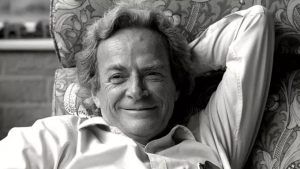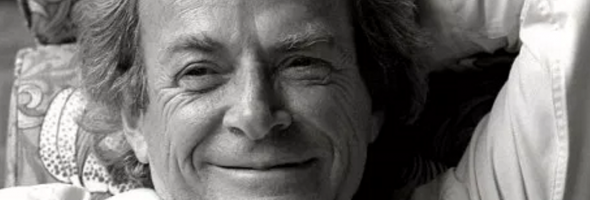
What makes the planets go around the sun? At the time of Kepler, some people answered this problem by saying that there were angels behind them beating their wings and pushing the planets around an orbit. As you will see, the answer is not very far from the truth. The only difference is that the angels sit in a different direction and their wings push inwards.
A law is not a cause; yet it is more than merely a description. It is true because it is beautiful and simple; yet it is never quite true at all. “That is the same with all of our laws- they are not exact. There is always an edge of mystery, always a place where we have some fiddling around to do yet.” Feynman wrestles with these issues throughout this volume, interspersing his philosophical discourse with digs at philosophers. They are like tourists, he says, moving in after the explorers have done their work and packed up. It was true that the rapid pace of science during the twentieth century especially had often left epistemologists a significant step behind. It was not philosophers who had discovered (or deduced) the impossibility of finding a system of physical laws unambiguously tying effects to causes; the quantum theorists had done that, and philosophers had scrambled to discuss the consequences.
Still, The Character of Physical Law is Feynman acknowledging that pragmatic science alone is not enough. “It is a problem,” he remarked at one point, “whether or not to worry about philosophies behind ideas.” He knew that to an academic philosopher his musings might seem less philosophy than folk wisdom. But what else could he do? Knowledge was his business. He had learned much about how to find it and how to recognize it, and he was unwilling to give in to an increasingly fashionable academic tendency to throw up one’s hands and say that knowledge was impossible, truth unattainable. Physicists had hands-on experience with uncertainty, and they learned how to manage it. And to treasure it- for the alternative to doubt is authority, against which science had fought for centuries. “Great value of a satisfactory philosophy of ignorance,” Feynman jotted on a sheet of notepaper one day, “to teach how doubt is not to be feared but welcomed.” This became his credo: he believed in the primacy of doubt, not as a blemish upon our ability to know but as the essence of knowing.
When he lays out for his listeners an account of the law of gravitation- its history, it mathematical engines, its limitations, and above all its universality- he is describing a portion of knowledge that becomes recognizable as one of humanities prize achievements. It cannot be finally or completely true; yet it must be true. The same law explains the earth’s symmetrically bulging tides and the orbits of Jupiter’s moons. It displays itself in experiments with balls hanging delicately in the laboratory and in the swirling of distant galactic clusters. “Exactly the same law,” Feynman says- and adds, “Nature uses only the longest threads to weave her patterns, so that each small piece of her fabric reveals the organization of the entire tapestry.
James Gleick
Introduction

